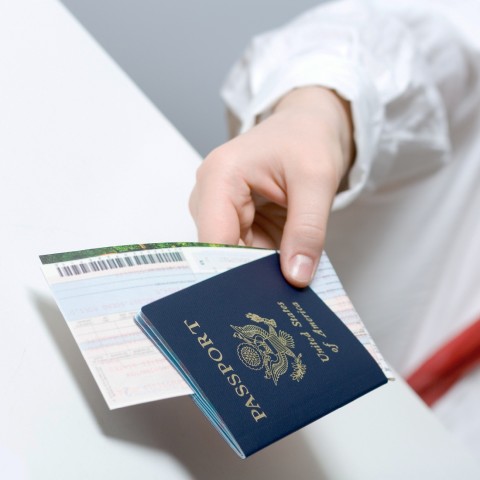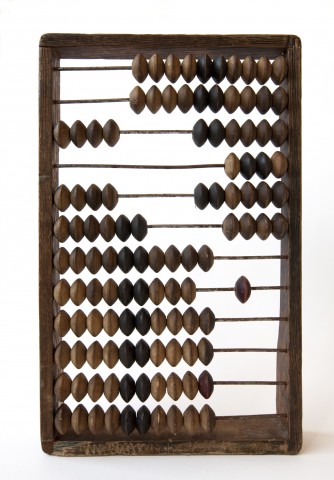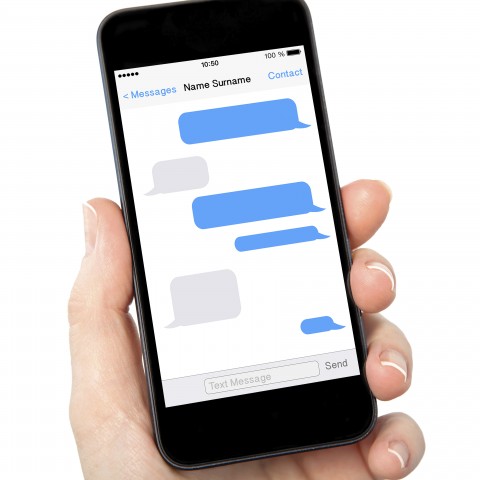
You’re learning to speak Hungarian, and it’s going well. Your confidence is growing! So much so that you feel ready to share your experiences on social media—in Hungarian.
At Learn Hungarian, we make this easy for you to get it right the first time. Post like a boss with these phrases and guidelines, and get to practice your Hungarian in the process.

1. Talking about Your Restaurant Visit in Hungarian
Eating out is fun, and often an experience you’d like to share. Take a pic, and start a conversation on social media in Hungarian. Your friend will be amazed by your language skills…and perhaps your taste in restaurants!
Dávid eats at a restaurant with his friends, posts an image of the group, and leaves this comment:

POST
Let’s break down Dávid’s post.
Már nagyon vártam a ma esti vacsorát! Nagyon jól éreztem magam!
“I was really looking forward to tonight’s dinner! I had a great time!”
1- Már nagyon vártam a ma esti vacsorát!
First is an expression meaning “I was really looking forward to tonight’s dinner!”
Use this sentence to express your excitement about an upcoming dinner. You can replace “tonight’s dinner” with other activities that you’re looking forward to.
2- Nagyon jól éreztem magam!
Then comes the phrase – “I had a great time!”
Use this expression to tell others that you had a great time. It can be used in any situation. If you were treated by someone, remember to say “thank you” in Hungarian at the end.
COMMENTS
In response, Dávid’s friends leave some comments.
1- Annyit ettem, hogy majd kidurranok!
His girlfriend’s high school friend, Nóra, uses an expression meaning – “I ate so much, I’m going to burst!”
Use this expression to be humorous.
2- Remélem, szép estétek volt!
His supervisor, Róbert, uses an expression meaning – “I hope you had a nice evening!”
Use this phrase to make pleasant conversation.
3- Igazán meghívhattál volna…
His girlfriend’s nephew, István, uses an expression meaning – “You really should have invited me…”
Use this expression to show you are feeling a bit left out.
4- Én is nagyon jól éreztem magam, köszönöm a meghívást!
His high school friend, Anikó, uses an expression meaning – “I also had a great time, thank you for the invitation!”
Use this expression to show you are feeling optimistic.
VOCABULARY
Find below the key vocabulary for this lesson:
nagyon: “very”
jól: “well”
kidurran: “to burst, to pop”
remél: “to hope”
szép: “nice, beautiful”
meghív: “to invite”
köszönöm: “thank you”
meghívás: “invitation”
So, let’s practice a bit. If a friend posted something about having dinner with friends, which phrase would you use?
Now go visit a Hungarian restaurant, and wow the staff with your language skills!
2. Post about Your Mall Visit in Hungarian
Another super topic for social media is shopping—everybody does it, most everybody loves it, and your friends on social media are probably curious about your shopping sprees! Share these Hungarian phrases in posts when you visit a mall.
Anna goes shopping with her sister at the mall, posts an image of the two of them, and leaves this comment:

POST
Let’s break down Anna’s post.
Ma shoppingolni megyünk a húgommal!
“We’re going shopping today with my sister!”
1- Ma shoppingolni megyünk
First is an expression meaning “We’re going shopping today.”
You will notice that the English word “shopping” appears in the Hungarian phrase. This word originally comes from English so Hungarian people use it as slang. The word is pretty widespread, but older people still might not understand its meaning.
2- a húgommal!
Then comes the phrase – “with my sister!”
The English translation says “sister,” but the Hungarian word literally means “younger sister.” In Hungarian, different words are used to describe an older or younger sister.
COMMENTS
In response, Anna’s friends leave some comments.
1- Már igazán rátok fért egy kis vásárlás!
Her neighbor, Ági, uses an expression meaning – “You really deserved some shopping!”
Use this expression when are feeling warmhearted about the post.
2- Kérlek, nézd meg, hogy van-e akció a férfi osztályon.
Her boyfriend, Dávid, uses an expression meaning – “Please check if there’s a sale in the men’s department.”
Use this expression to ask a favor.
3- Remélem, haza bírjátok majd cipelni a szatyrokat!
Her high school friend, Nóra, uses an expression meaning – “I hope you’ll be able to carry the shopping bags home!”
Use this expression to be humorous.
4- Én is oda tartok. Nem iszunk meg egy kávét?
Her college friend, Géza, uses an expression meaning – “I’m going there as well. Shall we have a coffee?”
Use these phrases if you want to make arrangements with the poster.
VOCABULARY
Find below the key vocabulary for this lesson:
ma: “today”
igazán: “really”
vásárlás: “shopping”
hogy: “that”
akció: “sale”
hazacipel: “to carry home”
iszik: “to drink”
kávé: “coffee”
So, if a friend posted something about going shopping, which phrase would you use?
3. Talking about a Sport Day in Hungarian
Sports events, whether you’re the spectator or the sports person, offer fantastic opportunity for great social media posts. Learn some handy phrases and vocabulary to start a sport-on-the-beach conversation in Hungarian.
Dávid plays with his friends at the beach, posts an image of the team, and leaves this comment:

POST
Let’s break down Dávid’s post.
Épp röplabdázunk a parton. Kiváló az idő!
“We’re playing volleyball on the beach. The weather is great!”
1- Épp röplabdázunk a parton.
First is an expression meaning “We’re playing volleyball on the beach.”
You can use the first word of this sentence to express that you’re doing something at that moment, as it literally means “right now.”
2- Kiváló az idő!
Then comes the phrase – “The weather is great!”
You can use this expression to let others know that you’re enjoying the good weather.
COMMENTS
In response, Dávid’s friends leave some comments.
1- Hajrá, srácok!
His college friend, Géza, uses an expression meaning – “Go for it, boys!”
Use this expression if you are feeling encouraging.
2- Nincs jobb, mint a szabadban sportolás!
His supervisor, Róbert, uses an expression meaning – “There’s nothing better than playing sports outdoors!”
Use this comment to express a personal opinion.
3- Ki nyert?
His high school friend, Anikó, uses an expression meaning – “Who won?”
Use this question if you need more information.
4- Nincs túl meleg ehhez?
His girlfriend’s nephew, István, uses an expression meaning – “Isn’t it too hot for this?”
This is a rhetorical question just to make conversation.
VOCABULARY
Find below the key vocabulary for this lesson:
röplabdázik: “to play volleyball”
Hajrá!: “Go for it!”
srác: “boy, tad”
ki: “who”
nyer: “to win”
túl: “too”
meleg: “warm”
Which phrase would you use if a friend posted something about sports?
But sport is not the only thing you can play! Play some music, and share it on social media.
4. Share a Song on Social Media in Hungarian
Music is the language of the soul, they say. So, don’t hold back—share what touches your soul with your friends!
Anna shares a song she just heard at a party, and leaves this comment:

POST
Let’s break down Anna’s post.
Nemrég hallottam ezt a számot, és azóta a kedvencem.
“I heard this song recently, and since then, it’s (been) my favorite.”
1- Nemrég hallottam ezt a számot
First is an expression meaning “I heard this song recently .”
You can use the first word of this phrase to express that something happened recently as it literally translates to “not long ago.”
2- és azóta a kedvencem.
Then comes the phrase – “and since then, it’s (been) my favorite..”
You can use this phrase to talk about something you like, especially from a certain time.
COMMENTS
In response, Anna’s friends leave some comments.
1- Tényleg nagyon jó!
Her boyfriend, Dávid, uses an expression meaning – “It’s really very good!”
Use this expression to show your agreement.
2- Mindjárt táncra perdülök itt a buszmegállóban!
Her high school friend, Nóra, uses an expression meaning – “I’m about to start dancing at the bus stop!”
Use this expression to be humorous and enthusiastic.
3- Köszi, hogy megosztottad! Nekem is nagyon tetszik!
Her neighbor, Ági, uses an expression meaning – “Thank you for sharing it! I like it a lot too!”
Use this expression if you are feeling warmhearted and grateful.
4- Nem igazán az én stílusom…
Her nephew, István, uses an expression meaning – “It’s not really my style…”
Use this expression to share a differing opinion.
VOCABULARY
Find below the key vocabulary for this lesson:
hall: “to hear”
szám: “number, song”
tényleg: “really”
jó: “good”
táncra perdül: “to start to dance”
buszmegálló: “bus stop”
megoszt: “to share”
stílus: “style”
Which song would you share? And what would you say to a friend who posted something about sharing music or videos?
Now you know how to start a conversation about a song or a video on social media!
5. Hungarian Social Media Comments about a Concert
Still on the theme of music—visiting live concerts and shows just have to be shared with your friends. Here are some handy phrases and vocab to wow your followers in Hungarian!
Dávid goes to a concert, posts an image of the band, and leaves this comment:

POST
Let’s break down Dávid’s post.
Szuper volt a koncert!
“The concert was great!”
1- Szuper volt
First is an expression meaning “was great!.”
The first word is the same in meaning and in sound to the English word “super.” In Hungarian, a “z” is added to the letter “s” to create the English “s” sound. It’s one of the Hungarian digraphs.
2- a koncert!
Then comes the phrase – “The concert .”
Again, the word for “concert” is very similar to the English word, but in Hungarian, it starts with a “k” instead of a “c”.
COMMENTS
In response, Dávid’s friends leave some comments.
1- Nagyon jól néz ki az énekesnő!
His college friend, Géza, uses an expression meaning – “The singer looks very good!”
Use this expression to share a personal opinion.
2- Remélem, nem nyomtak össze az első sorban!
His girlfriend’s high school friend, Nóra, uses an expression meaning – “I hope you weren’t squeezed in the front row!”
Use this expression to make pleasant conversation.
3- Örülök, hogy végre láthattad őket élőben zenélni!
His neighbor, Ági, uses an expression meaning – “I’m glad you were finally able to see them perform live!”
Use this expression if you are feeling warmhearted.
4- Az élő zene igazán pezsdítő.
His supervisor, Róbert, uses an expression meaning – “Live music is really stirring.”
This is an opinion that shows your agreement.
VOCABULARY
Find below the key vocabulary for this lesson:
énekesnő: “singer (female)”
első sor: “front row, first row”
örül: “to be happy”
lát: “to see”
élő: “live”
zenél: “to play music”
élő zene: “live music”
pezsdítő: “stirring”
If a friend posted something about a concert , which phrase would you use?
6. Talking about an Unfortunate Accident in Hungarian
Oh dear. You broke something by accident. Use these Hungarian phrases to start a thread on social media. Or maybe just to let your friends know why you are not contacting them!
Anna accidentally breaks her mobile phone, posts an image of it, and leaves this comment:

POST
Let’s break down Anna’s post.
Teljesen összetörtem a mobilom! Ezt nem hiszem el!
“I totally broke my cellphone. I can’t believe it!”
1- Teljesen összetörtem a mobilom!
First is an expression meaning “I totally broke my cellphone.”
Use this sentence to express that you broke your phone to the point that it’s in pieces.
2- Ezt nem hiszem el!
Then comes the phrase – “I can’t believe it!.”
Use this expression to show how shocked, surprised, or upset you are about a situation.
COMMENTS
In response, Anna’s friends leave some comments.
1- Nem baj, drágám, már úgyis újat akartunk venni.
Her boyfriend, Dávid, uses an expression meaning – “It’s okay, dear. We wanted to buy a new one anyway.”
Use these phrases if you wish to be supportive and helpful.
2- Fel a fejjel, Anna, nem dőlt össze a világ!
Her boyfriend’s high school friend, Anikó, uses an expression meaning – “Cheer up, Anna. The world didn’t crash above our heads!”
Use this expression to be supportive by playing down the accident.
3- Előfordul.
Her nephew, István, uses an expression meaning – “It happens.”
Use this observation if you wish to be reassuring by playing down the event.
4- Engem akartál hívni?
Her college friend, Géza, uses an expression meaning – “Were you about to call me?”
Use this expression to be frivolous and humorous.
VOCABULARY
Find below the key vocabulary for this lesson:
nem baj: “it’s okay, no problem”
új: “new”
akar: “to want”
fel a fejjel : “cheer up”
Előfordul.: “It happens.”
világ: “world”
hív: “to call”
If a friend posted something about having broken something by accident, which phrase would you use?
So, now you know how to describe an accident in Hungarian. Well done!
7. Chat about Your Boredom on Social Media in Hungarian
Sometimes, we’re just bored with how life goes. And to alleviate the boredom, we write about it on social media. Add some excitement to your posts by addressing your friends and followers in Hungarian!
Dávid gets bored at home, posts an image of it, and leaves this comment:

POST
Let’s break down Dávid’s post.
Unatkozom, és senki nem ér rá.
“I’m bored and no one is available.”
1- Unatkozom
First is an expression meaning “I’m bored.”
This verb is in first person singular. However, you won’t find the word that expresses “I” because the suffix that is used refers to the first person singular.
2- és senki nem ér rá.
Then comes the phrase – “and no one is available.”
You can use this phrase when explaining or complaining that no one is available. Keep in mind, however, that the first word means “and”, so you must attach this phrase to another complete sentence. Otherwise, you can remove “and” and use the remainder of the phrase as is.
COMMENTS
In response, Dávid’s friends leave some comments.
1- Aludj egy nagyot, amúgy is sokat dolgoztál.
His neighbor, Ági, uses an expression meaning – “Take a big nap. You already worked a lot.”
Use these phrases if you wish to be supportive and warmhearted.
2- Nemsokára hazaérek, és megnézhetünk egy filmet.
His girlfriend, Anna, uses an expression meaning – “I’ll be home soon, and we can watch a movie together.”
Use this expression to show your support and caring.
3- Így jártál, barátom.
His girlfriend’s nephew, István, uses an expression meaning – “You’re out of luck, my friend.”
Use this expression if you wish to be humorous by being a bit sarcastic.
4- Miért nem szóltál hamarabb?
His college friend, Géza, uses an expression meaning – “Why didn’t you tell me sooner?”
Use this expression if you are feeling regretful.
VOCABULARY
Find below the key vocabulary for this lesson:
unatkozik: “to be bored”
senki: “no one, nobody”
nagy: “big”
dolgozik: “to work”
nemsokára: “soon”
film: “movie”
barát: “friend”
miért: “why”
If a friend posted something about being bored, which phrase would you use?
Still bored? Share another feeling and see if you can start a conversation!
8. Exhausted? Share It on Social Media in Hungarian
Sitting in public transport after work, feeling like chatting online? Well, converse in Hungarian about how you feel, and let your friends join in!
Anna feels exhausted after a long day at work, posts an image of herself looking tired, and leaves this comment:

POST
Let’s break down Anna’s post.
Végre itthon! Nagyon elfáradtam.
“Finally, I’m home! I got very tired.”
1- Végre itthon!
First is an expression meaning “Finally I’m home!.”
Use this expression when you want to say that you couldn’t wait to get home from somewhere.
2- Nagyon elfáradtam.
Then comes the phrase – “I’m very tired..”
The first word means “very” and can be used to exaggerate conditions, such as in this example. The second word is a verb in the past tense without a personal pronoun since it’s indicated by the suffix.
COMMENTS
In response, Anna’s friends leave some comments.
1- Pihend jól ki magad!
Her boyfriend’s high school friend, Anikó, uses an expression meaning – “Rest well!”
Use this expression to wish the poster something positive.
2- Én még mindig dolgozom.
Her nephew, István, uses an expression meaning – “I’m still working.”
Use this expression to share personal information that’s in agreement with the poster.
3- Jó pihenést, Anna!
Her neighbor, Ági, uses an expression meaning – “Have a good rest, Anna!”
Use this expression if you are feeling warmhearted.
4- Ma ne főzz! Rendeljünk vacsorát.
Her boyfriend, Dávid, uses an expression meaning – “Don’t cook today! Let’s order dinner.”
Use this expression to show your support and caring.
VOCABULARY
Find below the key vocabulary for this lesson:
elfárad: “to get tired”
pihen: “to rest, to relax”
én: “I”
még mindig: “still”
főz: “to cook”
rendel: “to order”
vacsora: “dinner”
If a friend posted something about being exhausted, which phrase would you use?
Now you know how to say you’re exhausted in Hungarian! Well done.
9. Talking about an Injury in Hungarian
So life happens, and you manage to hurt yourself during a soccer game. Very Tweet-worthy! Here’s how to do it in Hungarian.
Dávid suffers a painful knee injury, posts an image of it, and leaves this comment:

POST
Let’s break down Dávid’s post.
Ezt nézzétek! Kifordult a térdem edzés közben.
“Look at this! I twisted my knee while training.”
1- Ezt nézzétek!
First is an expression meaning “Look at this!”
Use this expression when you want to catch someone’s attention.
2- Kifordult a térdem edzés közben.
Then comes the phrase – “I twisted my knee while training..”
You can find a digraph in the word for “training”. It’s pronounced “ds” like in “dads”.
COMMENTS
In response, Dávid’s friends leave some comments.
1- Nem kellett volna annyira erőltetni.
His girlfriend’s nephew, István, uses an expression meaning – “You shouldn’t have forced it that much.”
Use this expression to show your concern but beware, it might sound a bit unsympathetic.
2- Ebcsont beforr.
His girlfriend’s high school friend, Nóra, uses an expression meaning – “It’s going to heal soon.”
Use this expression to be supportive and positive.
3- Ne aggódj, hamar rendbe fogsz jönni, csak pihentesd.
His high school friend, Anikó, uses an expression meaning – “Don’t worry, you’ll be alright soon. Just rest it.”
Use this expression if you are feeling optimistic and supportive.
4- Azt hittem, jobb formában vagy.
His college friend, Géza, uses an expression meaning – “I thought you were in better shape.”
Use this expression to be frivolous and tease the poster.
VOCABULARY
Find below the key vocabulary for this lesson:
erőltet: “to force”
eb: “dog”
csont: “bone”
Ne aggódj!: “Don’t worry!”
hamar: “soon”
jobb: “better”
forma: “shape”
If a friend posted something about being injured, which phrase would you use?
We love to share our fortunes and misfortunes; somehow that makes us feel connected to others.
10. Starting a Conversation Feeling Disappointed in Hungarian
Sometimes things don’t go the way we planned. Share your disappointment about this with your friends!
Anna feels disappointed about today’s weather, posts an image of it, and leaves this comment:

POST
Let’s break down Anna’s post.
Kirándulni akartunk, de eleredt az eső.
“We wanted to hike, but it started to rain.”
1- Kirándulni akartunk,
First is an expression meaning “We wanted to hike,”
The second word is in the past tense and refers to first person plural. The personal pronoun “we” is omitted and expressed by the suffix.
2- de eleredt az eső.
Then comes the phrase – “but it started to rain..”
The first word of this phrase is a contrasting conjunction that means “but.” You can use it to connect compound sentences in Hungarian.
COMMENTS
In response, Anna’s friends leave some comments.
1- Nem baj, drágám, majd elmegyünk a jövő héten.
Her boyfriend, Dávid, uses an expression meaning – “Don’t worry, honey, we’ll go next week.”
Use this phrase if you wish to be supportive by making a suggestion.
2- Maradj otthon, nehogy megfázzatok!
Her neighbor, Ági, uses an expression meaning – “Stay at home. Don’t catch a cold!”
Use this expression to show your caring and concern.
3- Szerencse, hogy indulás előtt kezdett el esni, és nem amikor már kint voltatok.
Her boyfriend’s high school friend, Anikó, uses an expression meaning – “Luckily, it started raining before you left and not when you were already outside.”
Use this expression to make positive observations, keeping the conversation going.
4- Mi piknikeztük, és most csuromvizesek vagyunk.
Her high school friend, Nóra, uses an expression meaning – “We were having a picnic, and now we’re soaking wet.”
Use this phrase to share a personal experience.
VOCABULARY
Find below the key vocabulary for this lesson:
majd: “then”
jövő hét: “next week”
marad: “to stay”
megfázik: “to catch a cold”
szerencse: “luck”
előtt: “before”
kint: “outside”
vizes: “wet”
How would you comment in Hungarian when a friend is disappointed?
Not all posts need to be about a negative feeling, though!
11. Talking about Your Relationship Status in Hungarian
Don’t just change your relationship status in Settings, talk about it!
Dávid changes his status to “In a relationship”, and leaves this comment:

POST
Let’s break down Dávid’s post.
Annával minden perc csodás.
“Every minute is wonderful with Anna.”
1- Annával
First is an expression meaning “with Anna..”
Here, “with” is expressed by a suffix. That’s why there’s no separate word for it like in English. Anna is a common name in Hungary, as well.
2- minden perc csodás.
Then comes the phrase – “Every minute is wonderful.”
This phrase is a little over the top. Use it when you want to sound poetic, romantic, or very pathetic.
COMMENTS
In response, Dávid’s friends leave some comments.
1- Irigykedem.
His college friend, Géza, uses an expression meaning – “I’m envious.”
Use this expression to be frivolous.
2- Megtaláltátok egymást, mint zsák a foltját.
His girlfriend’s high school friend, Nóra, uses an expression meaning – “You found each other like a bag finds its patch.”
Use this expression to be humorous but also appreciative.
3- Szép pár vagytok.
His supervisor, Róbert, uses an expression meaning – “You’re a nice couple.”
Use this phrase to compliment the couple.
4- Örülök, hogy boldogok vagytok!
His high school friend, Anikó, uses an expression meaning – “I’m glad that you’re happy!”
Use this expression to show support and positive feelings.
VOCABULARY
Find below the key vocabulary for this lesson:
irigykedik: “to envy”
megtalál: “to find”
egymás: “each other”
zsák: “sack, bag”
folt: “patch”
pár: “couple”
boldog: “happy”
What would you say in Hungarian when a friend changes their relationship status?
Being in a good relationship with someone special is good news – don’t be shy to spread it!
12. Post about Getting Married in Hungarian
Wow, so things got serious, and you’re getting married. Congratulations! Or, your friend is getting married, so talk about this in Hungarian.
Anna is getting married today, posts an image of herself, and leaves this comment:

POST
Let’s break down Anna’s post.
Életem legszebb napja! Mindjárt sírok.
“The most beautiful day of my life! I’m about to cry.”
1- Életem legszebb napja!
First is an expression meaning “The most beautiful day of my life!.”
This is a common expression you can use when something extraordinary or wonderful is happening to you.
2- Mindjárt sírok.
Then comes the phrase – “I’m about to cry..”
You can use this expression when you’re about to cry either from joy or sadness.
COMMENTS
In response, Anna’s friends leave some comments.
1- Sok boldogságot!
Her supervisor, Róbert, uses an expression meaning – “Lots of happiness!”
Use this expression to show your agreement.
2- Nem túl korai egy picit?
Her nephew, István, uses an expression meaning – “Isn’t it a bit early?”
Use this expression to make an observation.
3- Legyetek nagyon boldogok!
Her neighbor, Ági, uses an expression meaning – “Be very happy!”
Use this expression to show you are feeling warmhearted and wish the couple well.
4- Vajon engem feleségül vesz egyszer valaki?
Her high school friend, Nóra, uses an expression meaning – “I wonder if someone would ever marry me?”
Use this expression to be melancholy.
VOCABULARY
Find below the key vocabulary for this lesson:
korai: “early”
picit: “a little”
vajon: “whether”
feleségül vesz: “to marry (a woman)”
valaki: “someone”
nem: “no, not”
élet: “life”
How would you respond in Hungarian to a friend’s post about getting married?
For the next topic, fast forward about a year into the future after the marriage…
13. Announcing Big News in Hungarian
Wow, huge stuff is happening in your life! Announce it in Hungarian.
Dávid finds out he and his wife are going to have a baby, posts an image of the two of them, and leaves this comment:

POST
Let’s break down Dávid’s post.
Hamarosan kisbabánk születik.
“Our baby will be born soon.”
1- Hamarosan
First is an expression meaning “soon..”
You hear this word often in daily life, for example, in train station announcements or on television when a show is about to start.
2- kisbabánk születik.
Then comes the phrase – “Our baby will be born.”
The first word literally means “our little baby.” This is a common and cute way to talk about babies. “Our” is expressed by the suffix at the end of the word.
COMMENTS
In response, Dávid’s friends leave some comments.
1- Nagyon várom, hogy láthassam a babát!
His neighbor, Ági, uses an expression meaning – “I’m really looking forward to seeing the baby!”
Use this expression to show you are feeling warmhearted and positive.
2- Remélem, nem rád fog hasonlítani.
His nephew, István, uses an expression meaning – “I hope it won’t resemble you.”
Use this expression to be humorous by being a bit insulting.
3- Lehetek a keresztanya?
His wife’s high school friend, Nóra, uses an expression meaning – “Can I be the godmother?”
Use this expression to show you are eager to support.
4- Gratulálok! Milyen csodás hír!
His high school friend, Anikó, uses an expression meaning – “Congratulations! What wonderful news!”
This is a traditional response to good news.
VOCABULARY
Find below the key vocabulary for this lesson:
születik: “to be born”
vár: “to wait”
baba: “baby”
hasonlít: “to resemble, to look alike”
keresztanya: “godmother”
Gratulálok!: “Congratulations!”
csodás: “wonderful”
hír: “news”
Which phrase would you choose when a friend announces their pregnancy on social media?
So, talking about a pregnancy will get you a lot of traction on social media. But wait till you see the responses to babies!
14. Posting Hungarian Comments about Your Baby
Your bundle of joy is here, and you cannot keep quiet about it! Share your thoughts in Hungarian.
Anna plays with her baby, posts an image of the little one, and leaves this comment:

POST
Let’s break down Anna’s post.
Nézzétek, milyen cukin mosolyog!
“Look at how cute she smiles!”
1- Nézzétek,
First is an expression meaning “Look,.”
Here the exclamation is directed to a group of people instead of just one. Use this short expression if you want to catch others’ attention.
2- milyen cukin mosolyog!
Then comes the phrase – “how cute she smiles!.”
The second word, meaning “cute” is a common slang expression used by all ages.
COMMENTS
In response, Anna’s friends leave some comments.
1- Nagyon bájos.
Her supervisor, Róbert, uses an expression meaning – “Very charming.”
Use this expression to be old fashioned.
2- Igazán szép, egészséges baba.
Her husband’s high school friend, Anikó, uses an expression meaning – “She is a really beautiful and healthy baby.”
Use this expression to share your agreement and appreciation.
3- A mosolya felvidítja a napom!
Her neighbor, Ági, uses an expression meaning – “Her smile brightens my day!”
Use this expression to show you are feeling warmhearted and appreciative.
4- Sok udvarlója lesz, ha felnő.
Her college friend, Géza, uses an expression meaning – “She’s going to have lots of suitors when she grows up.”
Use this expression to share an opinion that’s also a compliment.
VOCABULARY
Find below the key vocabulary for this lesson:
mosolyog: “to smile”
bájos: “charming”
egészséges: “healthy”
mosoly: “smile”
felvidít: “to freshen up, to delight, to cheer up”
nap: “day”
udvarló: “suitor”
felnő: “to grow up”
If your friend is the mother or father, which phrase would you use on social media?
Congratulations, you know the basics of chatting about a baby in Hungarian! But we’re not done with families yet…
15. Hungarian Comments about a Family Reunion
Family reunions – some you love, some you hate. Share about it on your feed.
Dávid goes to a family gathering, posts an image of the group, and leaves this comment:

POST
Let’s break down Dávid’s post.
Minden vasárnap összegyűlik a család.
“Every Sunday, the family gathers.”
1- Minden vasárnap
First is an expression meaning “Every Sunday.”
Sunday is the day when the majority of Hungarian people are off work. That’s why it’s often picked as the day for big gatherings, especially family gatherings.
2- összegyűlik a család.
Then comes the phrase – “the family gathers.”
Family gatherings are very important in Hungary. They mainly happen during lunch rather than dinner. Grandmothers are usually very excited about it and start meal preparation early in the morning.
COMMENTS
In response, Dávid’s friends leave some comments.
1- Jézusom, de sokan vagytok!
His wife’s high school friend, Nóra, uses an expression meaning – “Jesus, how many of you!”
Use this expression to be funny.
2- Nekem nem szólt senki…
His nephew, István, uses an expression meaning – “No one told me…”
Use this expression to show you are feeling excluded.
3- A család a legfontosabb.
His supervisor, Róbert, uses an expression meaning – “Family is most important.”
Use this expression to share a personal opinion that’s in agreement with the poster.
4- Milyen szép, nagy családod van!
His neighbor, Ági, uses an expression meaning – “What a nice, big family you have!”
Use this expression to show you are feeling warmhearted and appreciative.
VOCABULARY
Find below the key vocabulary for this lesson:
minden : “every, all”
vasárnap : “Sunday”
Jézusom!: “Jesus! “
szól: “to tell, to speak”
család: “family”
fontos: “important”
milyen: “how, what kind of”
Which phrase is your favorite to comment on a friend’s photo about a family reunion?
16. Post about Your Travel Plans in Hungarian
So, the family are going on holiday. Do you know how to post and leave comments in Hungarian about being at the airport, waiting for a flight?
Anna and her family wait at the airport for her flight, posts an image of herself, and leaves this comment:

POST
Let’s break down Anna’s post.
Nemsokára indulunk! Nagyon izgulok!
“We depart soon! I’m very excited!”
1- Nemsokára indulunk!
First is an expression meaning “We depart soon!”
You can use this expression to announce that you’re about to leave somewhere. You can also use it to catch the attention of someone who’s not ready to leave yet and indicate that they should hurry up.
2- Nagyon izgulok!
Then comes the phrase – “I’m very excited!”
You can use this expression to say that you’re either excited, nervous, or anxious, depending on the context.
COMMENTS
In response, Anna’s friends leave some comments.
1- Nászútra indultok?
Her college friend, Géza, uses an expression meaning – “Are you going on your honeymoon?”
Use this expression to be playful and frivolous.
2- Jó utat kívánok!
Her supervisor, Róbert, uses an expression meaning – “I wish you a nice trip!”
This is a traditional response to the announcement of someone’s travels.
3- Már megint utaztok?
Her nephew, István, uses an expression meaning – “Are you traveling again?”
Use this expression to tease the poster by being a bit negative.
4- Vigyázzatok magatokra! Ha bármi segítség kell itthon, szóljatok!
Her neighbor, Ági, uses an expression meaning – “Take care of yourselves! If you need any help at home, let me know!”
Use these phrases to show warmhearted support and be helpful.
VOCABULARY
Find below the key vocabulary for this lesson:
nászút: “honeymoon”
indul: “to leave, to depart”
megint: “again”
utazik: “to travel”
vigyáz: “to take care”
bármi: “anything, whatever”
segítség: “help”
Choose and memorize your best airport phrase in Hungarian!
Hopefully the rest of the trip is better!
17. Posting about an Interesting Find in Hungarian
So maybe you’re strolling around at the local market, and find something interesting. Here are some handy Hungarian phrases!
Dávid finds an unusual item at a local market, posts an image of it, and leaves this comment:

POST
Let’s break down Dávid’s post.
Azt hiszem, lesz miből válogatni. Mennyi szép áru!
“I think there will be enough to choose from. So many beautiful goods!”
1- Azt hiszem, lesz miből válogatni.
First is an expression meaning “I think there will be enough to choose from..”
This is a common saying that’s used when there is a variety of things to choose from. This saying can refer to anything.
2- Mennyi szép áru!
Then comes the phrase – “So many beautiful goods!”
You can use this expression to announce your amazement when you’re in a store or marketplace.
COMMENTS
In response, Dávid’s friends leave some comments.
1- Juj, biztos sok jó dolgot találtok majd!
His high school friend, Anikó, uses an expression meaning – “Oh, I’m sure you’ll find lots of nice things!”
Use this expression to show your agreement.
2- Én tutira eltévednék abban a nagy tömegben.
His wife’s high school friend, Nóra, uses an expression meaning – “I would definitely get lost in that big crowd.”
Use this expression to make a personal observation.
3- Van antik áru is?
His supervisor, Róbert, uses an expression meaning – “Are there antique goods as well?”
Use this question if you’re curious.
4- Mennyi kacat!
His nephew, István, uses an expression meaning – “So much junk!”
Use this expression to make a personal, negative observation.
VOCABULARY
Find below the key vocabulary for this lesson:
juj: “oh”
biztos: “sure, for sure”
dolog: “thing”
talál: “to find”
tutira: “for sure”
eltéved: “to get lost”
tömeg: “crowd”
kacat: “junk, lumber”
Which phrase would you use to comment on a friend’s interesting find?
Perhaps you will even learn the identity of your find! Or perhaps you’re on holiday, and visiting interesting places…
18. Post about a Sightseeing Trip in Hungarian
Let your friends know what you’re up to in Hungarian, especially when visiting a remarkable place! Don’t forget the photo.
Anna visits a famous landmark, posts an image of it, and leaves this comment:

POST
Let’s break down Anna’s post.
Ide mindig is el akartam jönni! Csodásak ezek a görög épületek!
“I’ve always wanted to come here! These Greek buildings are wonderful!”
1- Ide mindig is el akartam jönni!
First is an expression meaning “I’ve always wanted to come here! .”
Use this sentence when you’ve traveled to your dream place or destination.
2- Csodásak ezek a görög épületek!
Then comes the phrase – “These Greek buildings are wonderful!”
Going to Greece for a holiday is very popular in Hungary. People often go by bus since it’s not that far. It’s a longer journey than taking a flight, but it’s usually cheaper.
COMMENTS
In response, Anna’s friends leave some comments.
1- Ne felejtsétek el a szuvenírem!
Her high school friend, Nóra, uses an expression meaning – “Don’t forget my souvenir!”
Use this expression to be frivolous.
2- Nagyon jó képek, Anna, köszönöm.
Her supervisor, Róbert, uses an expression meaning – “Very nice photos, Anna. Thank you.”
Use these phrases to show your appreciation and gratitude.
3- Milyen szép ott! Nekünk is el kéne oda utaznunk.
Her neighbor, Ági, uses an expression meaning – “How beautiful (it is) there! We should travel there as well.”
Use this expression to show you are feeling positive about the location.
4- Jövőre menjünk együtt a szomszédos szigetre!
Her husband’s high school friend, Anikó, uses an expression meaning – “Next year let’s go together to the nearby island!”
Use this expression to make a suggestion.
VOCABULARY
Find below the key vocabulary for this lesson:
görög: “Greek”
épület: “building”
elfelejt: “to forget”
szuvenír: “souvenir”
kép: “picture”
oda: “there”
jövőre: “next year”
sziget: “island”
Which phrase would you prefer when a friend posts about a famous landmark?
Share your special places with the world. Or simply post about your relaxing experiences.
19. Post about Relaxing Somewhere in Hungarian
So you’re doing nothing yet you enjoy that too? Tell your social media friends about it in Hungarian!
Dávid relaxes at a beautiful place, posts an image of it, and leaves this comment:

POST
Let’s break down Dávid’s post.
Kék ég, tengerpart. Ez a tökéletes nyár!
“Blue sky, beach. This is the perfect summer!”
1- Kék ég, tengerpart.
First is an expression meaning “Blue sky, beach..”
Blue skies and the beach are the perfect combination for most Hungarians during summertime. The closest popular summer destination is Lake Balaton, the biggest lake in Central Europe.
2- Ez a tökéletes nyár!
Then comes the phrase – “This is the perfect summer!.”
Use this expression during summer when you’re having a great time.
COMMENTS
In response, Dávid’s friends leave some comments.
1- Jó pihenést mindkettőtöknek!
His supervisor, Róbert, uses an expression meaning – “I wish a nice rest for both of you!”
This is a slightly formal well-wish to the poster.
2- A fotót látva majdnem napszúrást kaptam.
His wife’s high school friend, Nóra, uses an expression meaning – “I almost got a sunstroke just from looking at the photo.”
Use this expression to be funny.
3- Pihenjetek sokat! Várom nagyon az élménybeszámolót!
His neighbor, Ági, uses an expression meaning – “Get a lot of rest! I’m really looking forward to the travel stories!”
Use this expression if you are feeling warmhearted and want to wish the poster well.
4- Itthon esik és hideg van.
His nephew, István, uses an expression meaning – “It’s raining and cold at home.”
Use this expression to share some personal news.
VOCABULARY
Find below the key vocabulary for this lesson:
tökéletes: “perfect”
nyár: “summer”
fotó: “photo”
majdnem: “almost”
napszúrás: “heatstroke”
élménybeszámoló: “travel story”
hideg: “cold”
Which phrase would you use to comment on a friend’s feed?
The break was great, but now it’s time to return home.
20. What to Say in Hungarian When You’re Home Again
And you’re back! What will you share with friends and followers?
Anna returns home after a vacation, and leaves this comment:

POST
Let’s break down Anna’s post.
Végre! Mindenhol jó, de a legjobb otthon.
“At last! Everywhere is good, but home is the best.”
1- Végre!
First is an expression meaning “At last! .”
Depending on the tone you use when you say it, this expression can be used in various situations, such as expressing anticipation, scolding someone for being late or lazy, or wishing for something to end.
2- Mindenhol jó, de a legjobb otthon.
Then comes the phrase – “Everywhere is good, but home is the best..”
This is a common saying after arriving home from somewhere, especially when you’re tired and want to rest.
COMMENTS
In response, Anna’s friends leave some comments.
1- Azt kétlem!
Her college friend, Géza, uses an expression meaning – “I doubt that!”
Use this expression if you are feeling frivolous.
2- Örülök, hogy épségben hazaértetek! Mit csináltok a nyár hátralevő részében?
Her husband’s high school friend, Anikó, uses an expression meaning – “I’m glad that you arrived home safe and sound! What are you doing for the rest of the summer?”
Use these phrases if you are feeling grateful, and want more information about their trip.
3- És még a ház se dőlt össze!
Her high school friend, Nóra, uses an expression meaning – “And yet, the house didn’t collapse!”
Use this expression to be funny.
4- Én inkább máshol lennék.
Her nephew, István, uses an expression meaning – “I would rather be somewhere else.”
Make this observation if you opinion differs from the poster’s.
VOCABULARY
Find below the key vocabulary for this lesson:
kételkedik: “to doubt”
épségben: “safe and sound”
hazaér: “to arrive home”
csinál: “to do”
hátralevő: “remaining”
ház: “house”
inkább: “rather”
How would you welcome a friend back from a trip?
What do you post on social media during a national commemoration day such as St. Stephen’s Day?
21. It’s Time to Celebrate in Hungarian
It’s a historic day and you wish to post something about it on social media. What would you say?
Dávid plans to go out and watch the St Stephen’s Day fireworks with Anna, and leaves this comment:

POST
Let’s break down Dávid’s post.
Este megyünk megnézni a tűzijátékot. Ki jön velünk?
“In the evening we’re going to see the fireworks. Who’s coming with us?”
1- Este megyünk megnézni a tűzijátékot.
First is an expression meaning “In the evening we’re going to see the fireworks.”
Fireworks are the main attraction on St. Stephen’s Day, the most important celebration in Hungary. This day commemorates both the foundation of the Hungarian state and Stephen I, the first king of Hungary. It’s celebrated on the 20th of August and is considered a national holiday.
2- Ki jön velünk?
Then comes the phrase – “Who’s coming with us?”
Use this expression to get someone’s attention when you want them to join you for an event.
COMMENTS
In response, Dávid’s friends leave some comments.
1- Mi is megyünk. Hol találkozzunk?
His high school friend, Anikó, uses an expression meaning – “We’re going too. Where should we meet?”
Use this expression to make arrangements with the poster.
2- Nem tudom eldönteni, hogy mit vegyek fel.
His wife’s high school friend, Nóra, uses an expression meaning – “I can’t decide what to wear.”
Use this expression to share personal news.
3- Én nem megyek a tömegbe, az tuti.
His nephew, István, uses an expression meaning – “I won’t go into the crowd, that’s for sure.”
Another personal opinion just to make conversation.
4- Én randira megyek, de lehet, hogy később csatlakozunk.
His college friend, Géza, uses an expression meaning – “I’m going on a date, but we might join later.”
Use this expression to make arrangements with the poster.
VOCABULARY
Find below the key vocabulary for this lesson:
tűzijáték: “fireworks”
mi: “we”
találkozik: “to meet”
eldönt: “to decide”
randi: “date”
lehet: “maybe”
később: “later”
csatlakozik: “to join”
If a friend posted something about a holiday, which phrase would you use?
St Stephen’s Day and other public commemoration days are not the only special ones to remember!
22. Posting about a Birthday on Social Media in Hungarian
Your friend or you are celebrating your birthday in an unexpected way. Be sure to share this on social media!
Anna goes to her birthday party, posts an image of it, and leaves this comment:

POST
Let’s break down Anna’s post.
Köszönöm mindenkinek, aki eljött! Nagy meglepetés volt!
“Thank you all who came! It was a big surprise!”
1- Köszönöm mindenkinek, aki eljött!
First is an expression meaning -“Thank you all who came!”
This is a common expression to say after an event or gathering, thanking the guests who joined.
2- Nagy meglepetés volt!
Then comes the phrase – “It was a big surprise!”
Use this expression when you’re pleasantly surprised by your friends or relatives on your birthday, or when you’re celebrating something.
COMMENTS
In response, Anna’s friends leave some comments.
1- Örülök, hogy jól érezted magad, drágám! Még egyszer boldog születésnapot!
Her husband, Dávid, uses an expression meaning – “I’m glad you enjoyed yourself, dear! Once again, happy birthday!”
Use this expression to be supportive of, and loving towards your beloved.
2- Füled érjen bokáig!
Her high school friend, Nóra, uses an expression meaning – “May your ears reach your ankles!” [A popular saying when someone has a birthday, because people’s ears grow larger as they age.]
Use this expression to be funny in a traditional way.
3- Úgy látszik, te már csak fiatalodsz!
Her husband’s high school friend, Anikó, uses an expression meaning – “It seems like you’re just getting younger!”
Use this expression to pay the poster a compliment.
4- Isten éltessen!
Her supervisor, Róbert, uses an expression meaning – “God bless you!”
This is a traditional blessing, suitable for the occasion.
VOCABULARY
Find below the key vocabulary for this lesson:
jól érzi magát: “to have a good time”
még egyszer: “once more, one more time”
fül: “ear”
ér: “to reach”
boka: “ankle”
te: “you”
Isten: “God”
If a friend posted something about birthday greetings, which phrase would you use?
23. Talking about New Year on Social Media in Hungarian
Impress your friends with your Hungarian New Year’s wishes this year. Learn the phrases easily!
Dávid celebrates the New Year, posts an image of it, and leaves this comment:

POST
Let’s break down Dávid’s post.
Boldog új évet kívánok! Legyen boldogságban és egészségben gazdag év ez minden kedves rokonomnak és ismerősömnek!
“I wish you a happy new year! Let your year be full of happiness and health to all my dear relatives and friends!”
1- Boldog új évet kívánok!
First is an expression meaning “I wish you a happy new year!.”
This is the most common way to send your greetings during the New Year season.
You can find postcards with this greeting as well. There’s also a popular abbreviation for this – just take the first letters of these tour words: “BÚÉK!”
2- Legyen boldogságban és egészségben gazdag év ez minden kedves rokonomnak és ismerősömnek!
Then comes the phrase – “Let your year be full of happiness and health to all my dear relatives and friends!”
This sentence expresses your best wishes for the year and for your relatives and friends. It’s formal but safe to use with everyone.
COMMENTS
In response, Dávid’s friends leave some comments.
1- Újabb év, újabb betarthatatlan fogadalmak.
His wife’s high school friend, Nóra, uses an expression meaning – “Another year, another unenforceable resolution.”
Use this expression to be funny about New Year’s resolutions.
2- Boldog új évet nektek is!
His neighbor, Ági, uses an expression meaning – “Happy New Year to you too!”
This is the traditional response to a New Year’s wish.
3- Lesz buli nálatok?
His college friend, Géza, uses an expression meaning – “Will there be a party at your place?”
Ask this question if you need more information.
4- Hogy boldog lesz-e, azt még senki nem tudja.
His nephew, István, uses an expression meaning – “No one knows whether it’ll be happy yet. ”
Use this expression to show you are feeling somewhat cynical about the New Year.
VOCABULARY
Find below the key vocabulary for this lesson:
rokon: “relative”
év: “year”
betarthatatlan: “unenforceable”
fogadalom: “resolution”
is: “too, as well, also”
buli: “party”
tud: “to know”
Which is your favorite phrase to post on social media during New Year?
But before New Year’s Day comes another important day…
24. What to Post on Christmas Day in Hungarian
What will you say in Hungarian about Christmas?
Anna celebrates Christmas with her family, posts an image of it, and leaves this comment:

POST
Let’s break down Anna’s post.
Kellemes karácsonyi ünnepeket kíván a Szabó család!
“The Szabó family wishes you a Merry Christmas!”
1- Kellemes karácsonyi ünnepeket kíván
First is an expression meaning “wishes you a Merry Christmas”.
You can use this phrase to send your Christmas greetings. You should place your name or your family name at the end of it, because the last verb is in third person singular. Even though a family consists of a group of people, it stays in the third person singular because it’s considered a unit in this case.
2- a Szabó család!
Then comes the phrase – “The Szabó family.”
The surname in this phrase is very common in Hungary.
COMMENTS
In response, Anna’s friends leave some comments.
1- Békés ünnepeket kívánok!
Her supervisor, Róbert, uses an expression meaning – “I wish you a peaceful holiday!”
This is a formal wish for a good day, appropriate for this occasion.
2- Jaj Anna, nagyon köszönöm a szép képeslapot!
Her husband’s high school friend, Anikó, uses an expression meaning – “Oh Anna, thank you very much for the nice postcard!”
Use this expression if you are appreciative of a postcard the poster sent you.
3- Már látom magam előtt a sok finom karácsonyi ételt. Idén se leszek vékonyabb.
Her high school friend, Nóra, uses an expression meaning – “I can already see a lot of delicious Christmas food in front of myself. Even this year I won’t be thinner.”
Use this expression to be funny.
4- Nem bírom ezt a nagy karácsonyi nyüzsgést. Ne hívjatok, nem megyek sehova!
Her nephew, István, uses an expression meaning – “I can’t stand this big Christmas bustle. Don’t call me, I’m not going anywhere!”
Use these phrases to express humour with a bit of cynicism.
VOCABULARY
Find below the key vocabulary for this lesson:
kíván: “to wish”
karácsony: “Christmas”
békés: “peaceful”
ünnep: “holiday”
képeslap: “postcard”
finom: “delicious”
idén: “this year”
nyüzsgés: “bustle”
If a friend posted something about Christmas greetings, which phrase would you use?
So, the festive season is over! Yet, there will always be other days, besides a birthday, to wish someone well.
25. Post about Your Anniversary in Hungarian
Some things deserve to be celebrated, like wedding anniversaries. Learn which Hungarian phrases are meaningful and best suited for this purpose!
Dávid celebrates his wedding anniversary with his wife, posts an image of the two of them together, and leaves this comment:

POST
Let’s break down Dávid’s post.
Boldog évfordulót, kedvesem!
“Happy anniversary darling!”
1- Boldog évfordulót
First is an expression meaning “Happy anniversary.”
Use this phrase to congratulate a person or a group on their anniversary.
2- kedvesem!
Then comes the phrase – “darling!”
This is how you call someone “darling” in Hungarian. It’s used in a more romantic context and is not as casual as the term “honey”.
COMMENTS
In response, Dávid’s friends leave some comments.
1- Nagyon boldog vagyok! Köszönök mindent, Dávid!
His wife, Anna, uses an expression meaning – “I’m very happy! Thank you for everything, Dávid!”
Use these phrases to show your appreciation of your partner’s comment.
2- Én is akarok évfordulót! Meg ajándékot!
His wife’s high school friend, Nóra, uses an expression meaning – “I also want an anniversary! And a gift!”
Use these phrases to be funny.
3- Csodás pár vagytok! Sok örömökben gazdag évet kívánok nektek.
His high school friend, Anikó, uses an expression meaning – “You’re a wonderful couple! I wish you many years rich in joy.”
These phrases indicate your appreciation of the couple’s happiness, and include a warmhearted well-wish.
4- Gratulálok! Rendkívüli örömmel tölt el, hogy ilyen szeretetben látlak titeket.
His supervisor, Róbert, uses an expression meaning – “Congratulations! I feel extraordinary joy seeing you so in love.”
Use these phrases to show your appreciation and congratulate the couple.
VOCABULARY
Find below the key vocabulary for this lesson:
évforduló: “anniversary”
ajándék: “present”
öröm: “joy”
gazdag: “rich”
rendkívüli: “extraordinary”
ilyen: “such”
szeretet: “love”
If a friend posted something about Anniversary greetings, which phrase would you use?
Conclusion
Learning to speak a new language will always be easier once you know key phrases that everybody uses. These would include commonly used expressions for congratulations and best wishes, etc.
Master these in fun ways with Learn Hungarian! We offer a variety of tools to individualize your learning experience, including using cell phone apps, audiobooks, iBooks and many more. Never wonder again what to say on social media!



 Table of Contents
Table of Contents

























































 Table of Contents
Table of Contents



















 Table of Contents
Table of Contents
























